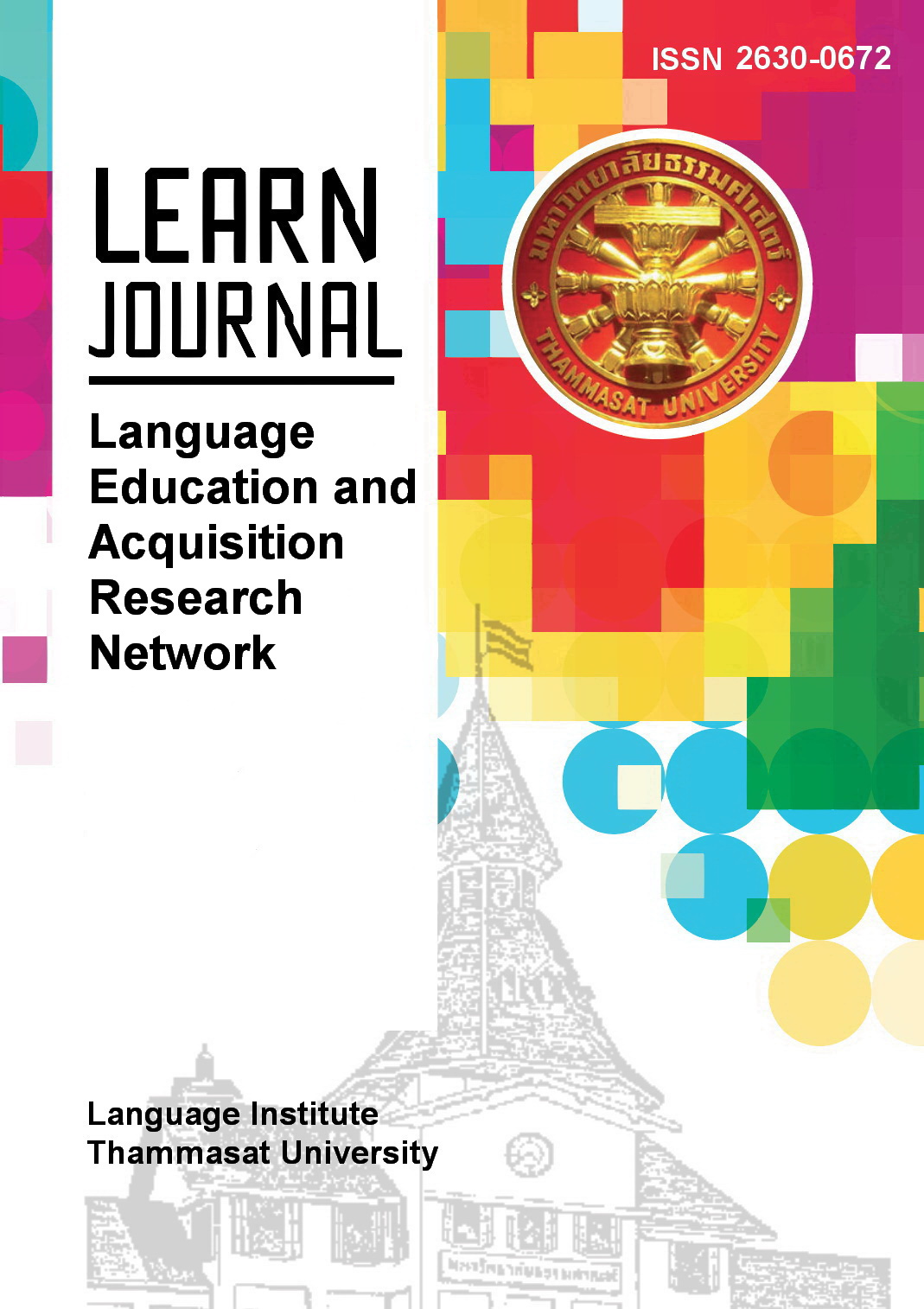Exploring Discourse Marker Use in Thai University Students’ Conversations
Main Article Content
Abstract
Using a specialized corpus of English conversations between Thai university students and non-Thai speakers of English, this study examines the distribution of discourse markers employed and how they function in context. Analysis of transcriptions from a conversational perspective, reference to audio recordings and frequency counts revealed thirty-four different discourse markers used, making up 5.6% of the total corpus. The most frequent were and, OK, but and so respectively. Results indicate that, for engagement in conversations, discourse markers were employed by participants most commonly for referential purposes, lacking in extensive discourse marker use for interpersonal communication (e.g. marking and confirming shared knowledge, hedging) and cognitive functions (e.g. reformulating, repair). For the management of conversations, structural discourse markers emerged from the data to function mainly as topic shifters and mostly to give turns. The deficiency in overall discourse marker use found in Thai EFL student conversations points to a pedagogical urgency to create learner awareness of how applying these small words can significantly impact the quality of a conversation and the relationship between interlocutors.


